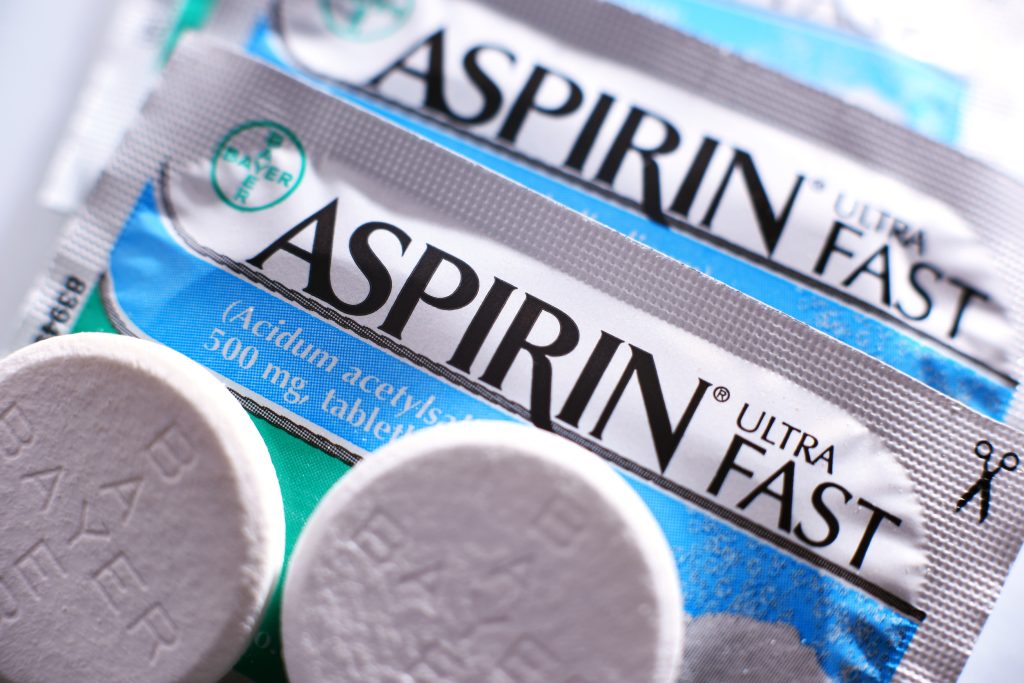
www.optimistdaily.com
Low-dose aspirin may cut risk of colorectal cancer returning in key patients, study shows
BY THE OPTIMIST DAILY EDITORIAL TEAM
A low-cost, widely available drug might offer major protection against one of the most common cancers worldwide. New research out of Sweden suggests that a low daily dose of aspirin could significantly reduce the chance of colorectal cancer returning after surgery, but only for certain patients with specific genetic mutations.
The findings, published in the New England Journal of Medicine, stem from the Alascca trial led by Professor Anna Martling at the Karolinska Institute. Her team followed more than 3,500 colorectal cancer patients across Sweden, Norway, Denmark, and Finland to determine whether aspirin could play a role in preventing cancer recurrence.
A striking reduction in recurrence risk
After analyzing genetic tests from 2,980 participants, the researchers identified that 1,103 individuals, which amounts to about 37 percent, had mutations in a pathway called PI3K, known to be involved in colorectal cancer. These patients were randomly assigned to receive either 160 milligrams of aspirin daily or a placebo for three years following surgery.
The study resulted in a dramatic 55 percent reduction in the risk of cancer returning among those who took aspirin. “If you had these mutations, the risk of the cancer coming back was lowered by more than 50 percent. It is a huge effect,” said Martling. “I think this will change clinical practice.”
Understanding why aspirin works
While aspirin has long been studied for its protective benefits in cardiovascular health, its role in cancer prevention has gained growing attention in recent years. In this trial, the drug appeared to suppress inflammation, disrupt the PI3K pathway, and reduce the activity of blood platelets, which can shield tumor cells from the body’s immune system.
Earlier research had shown aspirin’s ability to help prevent colorectal cancer in individuals with hereditary conditions like Lynch syndrome, but its effectiveness in preventing recurrence after tumor removal remained an open question until now.
Genetic testing could guide treatment
Martling emphasized the importance of routine genetic testing for colorectal cancer patients. By identifying those with PI3K mutations, healthcare providers could tailor post-surgical care and offer aspirin as a targeted, cost-effective prevention strategy.
“It’s a widely available drug that is extremely inexpensive,” Martling noted. “We now have strong evidence to support offering it to the right group of patients.”
Weighing benefits and risks
Despite its accessibility and affordability, aspirin is not without risks. In the trial, four participants experienced severe side effects possibly related to aspirin, including gastrointestinal bleeding, an allergic reaction, and brain hemorrhage. One patient’s death may have been linked to the drug.
These findings underscore the need for careful risk-benefit assessments and consultation with healthcare providers before beginning long-term aspirin use, especially for individuals with underlying conditions or bleeding risks.
A step forward in personalized cancer care
Experts believe this research adds to a growing body of evidence supporting aspirin as a tool in cancer prevention, but only when used strategically.
Dr. Catherine Elliott, director of research at Cancer Research UK, welcomed the findings. “There is increasing evidence that in certain groups of people, low-dose aspirin can offer protection from bowel cancer,” she said. She also pointed to the CaPP3 trial, which found a similar benefit for individuals with Lynch syndrome.
“We need larger, high-quality studies like CaPP3 and this recent research to confirm who would most benefit from taking aspirin to help them live longer, better lives, free from the fear of cancer,” Elliott declared.
Source study: The New England Journal of Medicine—Low-dose aspirin for PI3K-altered Localized colorectal cancerThe post Low-dose aspirin may cut risk of colorectal cancer returning in key patients, study shows first appeared on The Optimist Daily: Making Solutions the News.










